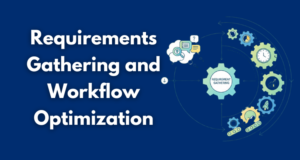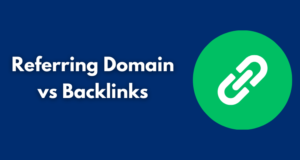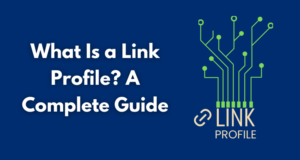The insurance market in 2025 is undergoing a profound digital transformation. Every day, companies process huge amounts of information: customer medical records, vehicle telemetry data, statistics on natural disasters, and many other sources.
According to Damco Solutions, about 86% of insurance companies already consider working with big data and risk analytics a key factor in competitiveness.
In these conditions, specialized software is no longer just a convenient tool, it is becoming a strategic asset. Modern systems not only speed up information processing, but also turn “raw” data arrays into accurate forecasts, reducing the likelihood of losses and improving the quality of customer experience.
Table of Contents
ToggleBig data: from chaos to a manageable system

The volume of information that insurers face is growing exponentially. In the auto insurance segment, millions of signals from telematic sensors are recorded daily, and in health insurance, the volume of data is increasing thanks to digital maps and health tracking devices.
Sources of information are diverse:
- historical data on payments and losses,
- medical records and examination results,
- readings from IoT devices – from fitness bracelets to smart cars,
- geoanalytics that take into account climate risks and accident rates by region.
If such arrays previously seemed chaotic, then modern machine learning systems make it possible to identify patterns and predict the likelihood of certain events.
For example, by analyzing weather conditions and driving style, algorithms can assess the risk of an accident in advance and offer the client an individual rate.
Risk management at a new level

Traditional actuarial calculations relied on averaged models and statistics for past periods. Today, insurance companies are moving to dynamic risk management tools.
Software solutions predict losses based on specific client behavior and external factors, create flexible rates that are updated in real time, and monitor events online.
For example, agricultural insurance uses satellite data to track the condition of fields and predict crop losses before an insured event occurs.
The implementation of such analytical systems can reduce losses by 10-15% in the first two years of their use.
Artificial Intelligence and automation
AI has become a key element of specialized software. It speeds up information processing and is able to identify patterns that are inaccessible to humans.
One of the most notable areas is the fight against fraud: algorithms analyze thousands of cases and recognize suspicious patterns in a matter of seconds.
Another example is robotic processing of claims for payments. According to McKinsey, automation of up to 70% of settlement processes can reduce the time for reviewing an application from five days to several hours.
And thanks to the personalization of products based on the analysis of medical data, clients receive offers that best meet their real needs.
Interrelation with related industries
The development of insurance technologies is closely linked to experience in other areas. This is especially evident in healthcare.
Here, digital systems make it possible to analyze electronic patient records and predict disease risks. The same algorithms are used in life and health insurance: companies create individual insurance packages based on medical data.
In this context, custom healthcare software development is especially important, since solutions created for medical institutions directly affect the ability of insurers to more accurately assess risks and manage big data.
International experience: from the USA to Asia
In the USA, Progressive has long been using telematics: customers install an application that records driving style and receive personalized rates. In Europe, Allianz is actively investing in platforms that process climate and geodata in order to more accurately predict the consequences of natural disasters.
In Asia, insurers have gone even further by integrating software with healthcare: patient data is used to create insurance packages in real time.
These examples show that digitalization of the insurance industry is not an experiment, but a global trend that has already brought tangible results.
Challenges and limitations
Despite the obvious advantages, the implementation of specialized software is associated with certain risks. The first issue is cybersecurity: insurance companies work with personal and medical data, which makes them one of the most attractive targets for cyberattacks.
The second barrier is related to legislation: the rules for storing and processing information, such as GDPR in Europe, require serious adaptation of technologies. Cost remains an equally significant factor: the development and support of complex solutions require large investments.
The key challenges can be reduced to three aspects:
- protection of personal data and the fight against cyber threats,
- compliance with regulatory standards in different jurisdictions,
- high cost of implementation for medium and small market players.
Nevertheless, experts agree: the digitalization of the insurance sector is irreversible, and companies that postpone the transition risk being left on the sidelines.
What’s in the future: insurance as a predictive service
In the coming years, insurance will shift from a “reactive” model, when companies compensate for losses that have already occurred, to a predictive one. Specialized software will be able not only to assess risks, but also to prevent their occurrence.
In auto insurance, this means notifying drivers about potentially dangerous routes. In medicine, it means recommendations for lifestyle changes based on health indicators. In property insurance, it means forecasting the likelihood of floods or fires, taking into account weather conditions.
This model changes the very nature of the insurance business: the company becomes a partner of the client in preventing problems, and not just in compensating for them.
Specialized software opens up new horizons for insurance companies. It turns big data into a manageable resource, makes risk management more accurate and efficient, and interaction with the client – personalized.
The integration of artificial intelligence, analytics and experience from related industries allows us to reduce losses, combat fraud and form predictive work models. Those insurers who are already investing in digital technologies today will be not just market participants, but its leaders tomorrow.










